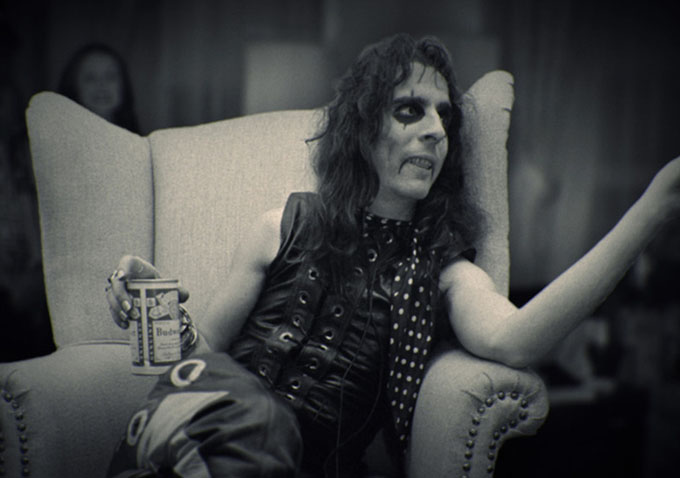
As directors Scot McFadyen and Sam Dunn proved with 2010’s “Rush: Beyond The Lighted Stage,” they can take even the nerdiest, most seemingly inoffensive band, and turn out something fascinating, amusing, insightful and even at times moving. And on paper, tackling shock rocker Alice Cooper—whose onstage persona inspired decades of artists to actively piss off parents—should be an obvious next step. Yet surprisingly, and disappointingly, the filmmakers—along with third co-director Reginald Harkema—miss the mark with the mostly dull and uninvolving “Super Duper Alice Cooper,” a portrait of the rock star that lacks the very edge and sense of danger that the artist himself exuded in his prime. And given the access the team behind the movie had not only to Cooper himself, but many key players around him, frustration mounts as one realizes that this could’ve been so much more.

Famed promoter and manager Shep Gordon, former bandmate Dennis Dunaway, wife Sheryl Cooper, producer Bob Ezrin, John Lydon, Elton John, Bernie Taupin and more all share their stories about working with Cooper, but there are two fundamental problems with ‘Super Duper.’ The first is in the approach, as this isn’t so much a documentary as an extended montage, entirely made up of archival footage, stock material, photographs and small bits of animation, with audio interviews used as the narrative thread to tie it all together. But this means we never seen the actual faces of Cooper himself, or anyone else participating in the movie. This crucially causes a permanent disconnect between the audience and some of the (potentially) more stirring moments, particularly when ‘Super Duper’ dives into Cooper’s personal woes and battles with drug addiction.
This aesthetic, detached from any actual human presence in the film, also manages to unintentionally underscore that Alice Cooper’s story is actually not all that interesting. Is it ironic that he grew up in a normal, happy household and was the son of a pastor? Sure. But as even Cooper admits himself, everything done in the name of Alice Cooper was completely calculated, so the story of his stage persona isn’t one of artistic expression finding creative ground to flourish, so much as market manipulation by someone who just liked to perform. Alice Cooper—the band and later, as a solo gig—found a niche that wasn’t taken and made it successful. Cooper and Gordon were savvy enough to bang down Ezrin’s door, not because he matched the musical sensibility of the act, but because he knew how to make hit records. There isn’t much talk about the writing of the songs, because that wasn’t important; image and theatrics were always the brand of Alice Cooper, but there is only so much cinematic mileage that can use up before it runs out of gas.

Covering the start of his career until his mid-’80s comeback, “Super Duper Alice Cooper” is respectful but never probes further than the surface. In fact, in Mike Myers‘ upcoming documentary about Shep Gordon, “Supermensch,” you’ll hear at least a couple of the same anecdotes told with greater relish and looseness. And for the documentary to conveniently leave out Cooper’s later born again Christian status, and his opinions on politics in the rock ‘n’ roll sphere, is a major oversight in trying to understand who Alice Cooper was and is today. There is also little sense of the cultural impact Cooper has actually had, and more crucially, what he may owe to performers that came before him. The documentary would like you to believe Cooper was an original, but even if he didn’t know it, the rocker was playing off a tradition that other musicians before him had built, whether it was the flamboyant Little Richard or even the oddball Screamin’ Jay Hawkins. And what does Cooper think of the current generation of artists provoking the status quo with sexually or violently aggressive personas? You won’t find out here.
Something like a cinematic Wikipedia entry, “Super Duper Alice Cooper” re-establishes the already familiar story of the rocker, but never stops long enough at any moment to get any real meaning out of it. Sticking to a routine arc of rags to riches, with a couple bumps along the way before a triumphant return (with the less than elegant career fade out unacknowledged), ‘Super Duper’ is pedestrian stuff, a drive-by look at one of the most controversial figures of his generation, that never achieves a closer inspection of the man behind the makeup. [C]
Browse through all our coverage of the 2014 Tribeca Film Festival by clicking here.

